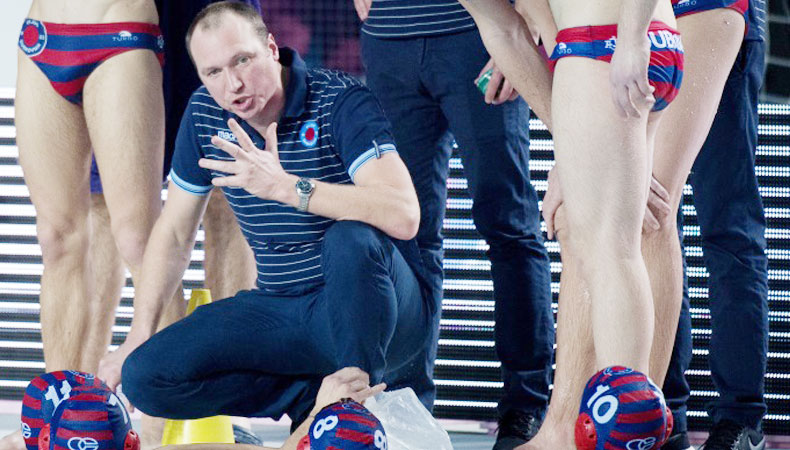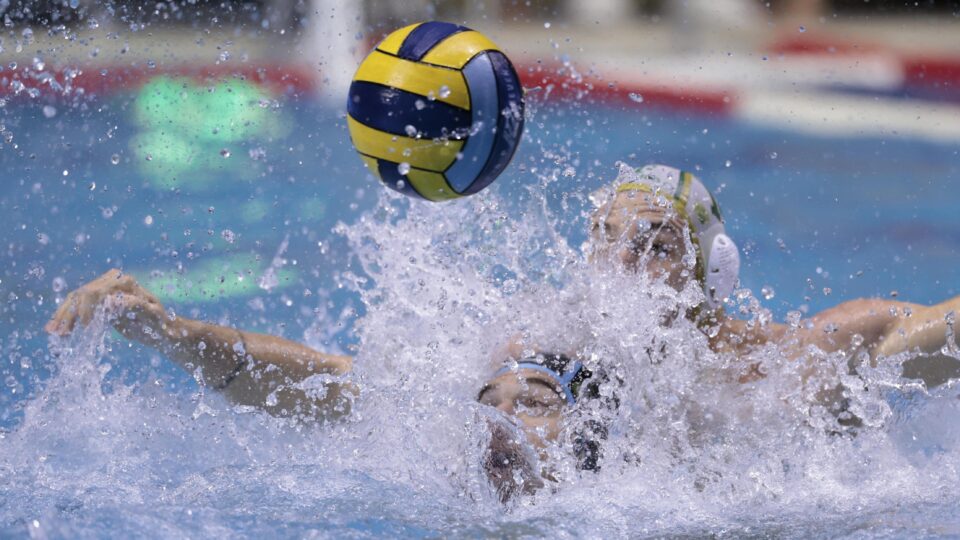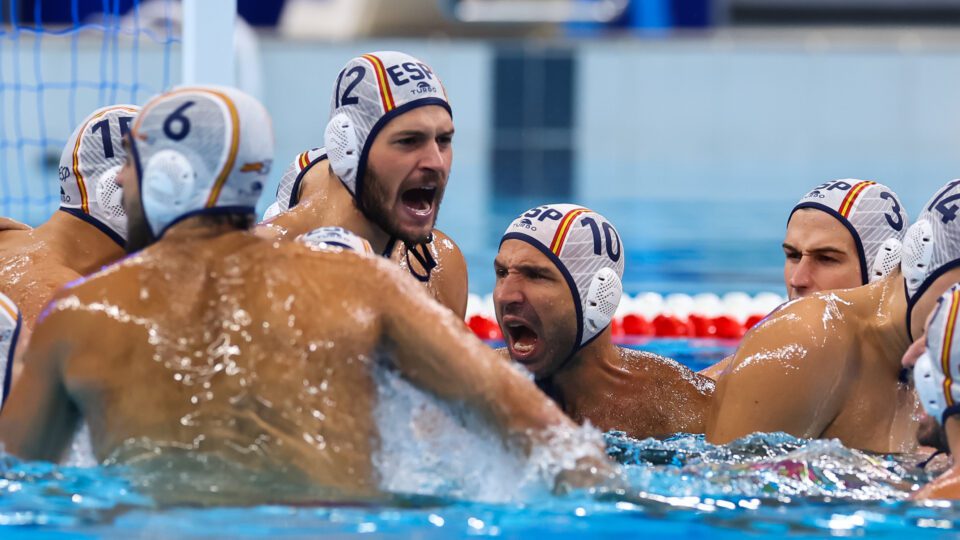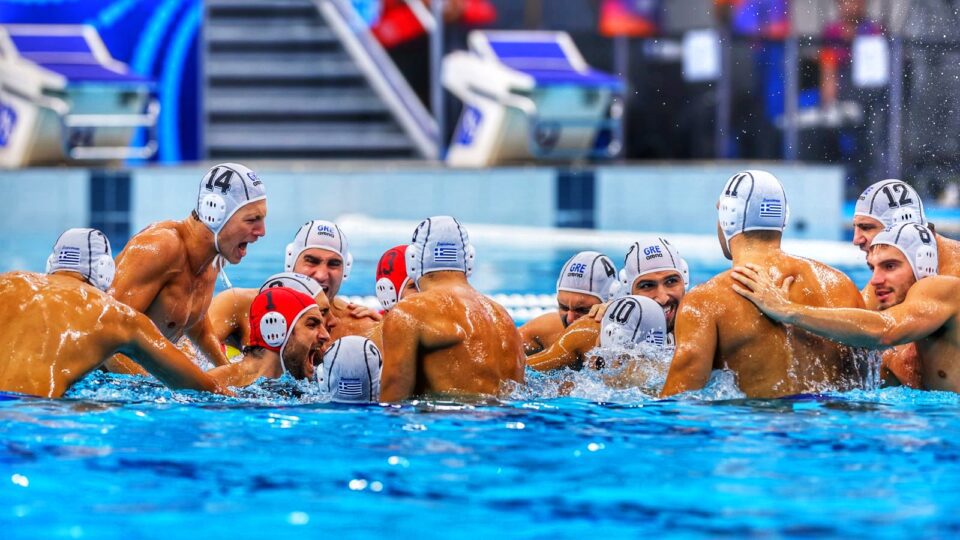Vjekoslav Kobešćak is the head coach who led Dubrovnik’s VK Jug to nine finals in the last two years and managed to win eight trophies. He was able to crush Pro Recco twice in the last two LEN Champions League semi-finals, denying them the chance to play for the trophy. Vjeko was happy to share his thoughts with Total Waterpolo.
Once we started talking his vast knowledge and strong passion for water polo expressed themselves in his sophisticated answers and many questions from our side, so we decided to deliver this exclusive interview in two parts.
Water Polo World Championship in Budapest 2017
Even though Gocić and Nikić left the national team and they had to play this year’s World League Superfinal without Mandić and Jakšić, Serbia was again able to go grab the gold. Are they the absolute favorite for this year’s World Championship as well or is there a chance for other teams to win?
Serbia is left without two key players (Gocić, Nikić), but they were able to fill the gaps with quality replacements and have thus changed fewer players than their competitors.
Their playmakers have been the world’s best for years and if they stay hungry for success and companionship (which they obviously are) Serbia’s national team can definitely be considered the top contender for the world title.
Of course, we love the competitive sport for the surprises it bears, which are more than possible during the post-Olympic year.
The World Championship in Budapest will probably be very exciting, while we should also consider next year’s return of Perrone, Vrlić, Echenique and possibly other big names to the international water polo stage.
We all know how passionate the Hungarians are about water polo and that the world championships are being held in Budapest for the first time in history. Considering the initial impressive quality of the Hungarian team, their position as hosts puts them right next to the Serbians as top contenders for the gold medal. In your opinion, will playing such a big tournament in front of their home crowd serve as an additional push or add up more pressure?
It’s difficult for me to answer this. The Hungarians have a new coach as well as a few new players. Some players had an outstanding season (Nagy, Mezei, Varga). We will see if they are on par with Serbia though. They themselves definitely see themselves like that and they have to go for the gold every single time. Only the tournament will show if they can succeed.
Sukno’s condition is surely questionable. Can Croatia reach the winner’s podium for the 6th consecutive time in a World Championship?
They can – with or without Sandro. We have a strong foundation in our team, especially defensively, if you ask me (agile players, solid set guards, strong keepers and quick counter attacks). Considering the impressive streak of results over the past few years, we have no reason to be nervous or pressure ourselves. No matter if Sandro will play or not.
We have an excellent team both for this championship and this Olympic cycle. At the same time, we have a strong national league forming, which will fill up the national team with new players if necessary.
You have worked with Hrvoje Hrestak for a long time, who is currently the French national coach. What can the French team deliver for this championship?
By qualifying for the Olympic Games in Rio the French have returned to the big stage. Considering that this generation has partially run out of steam, they brought in Hrestak to prepare and introduce young players to the national team. As they do not have as good a working system with younger players as we Croatians do, this turns out to be everything but an easy task.
But if there is somebody who knows how to work with youngsters and who possesses an enormous amount of energy, then that’s Hrvoje. I wish him all the best. I believe that it’s a big deal for a Croatian to be the head coach of such a big country. A place among the top 12 teams should be satisfactory for them. If they manage to strengthen their league, their further improvement will become so much easier.
LOOKING BACK
As a former world-class player who played many big games and tournaments: How did you as a player feel before tournaments like this?
Playing for your national team in such a tournament is the end game of every real athlete and I had the privilege to be part of that for 12 years. You feel stage fever, a great craving, sometimes strength, sometimes insecurity…a little bit of everything can be found.
Would you share with us your favorite memories from your national team career during a grand tournament?
Our generation was not as successful as this one. We only managed to win a few silver medals. But the best memories usually come with victories. Atlanta ’96 remains a favorite memory of mine.
We didn’t play too well during the group stage, but I remember a team meeting where the late Silić managed to psychologically lift the whole team (Sila had a hand for those things and there was never any discord within the team) and thus we managed to achieve a success at the tournament. But we sure do miss that potential gold medal from that day…
I personally like to recall the Olympics in Sydney. That year we played the best water polo on an international level and created a well-balanced team, which would have been able to go far for a few more years…But we were eliminated in the quarter-finals. That Olympics left us with a lot to learn.
What can the head coach and his staff do during the last week of preparations to bring their team to the top of their game?
Not that much. Game and form have to be built throughout the whole Olympic cycle or during the preparations. That final stretch already serves as a recovery period for the players, you work on tactics and agility. The main work has already been done. And then with the tournament, the real strain starts.
LOOKING FORWARD
We, who consider ourselves “insiders”, usually don’t like to hear the broader public talk about Water polo as a sport that is only played in 6 countries, but the fact remains, that in the history of this sport only 6 countries have ever won the World Championship (one being the former USSR). With a bit of good fortune, you can become world champion by playing two strong matches. What can be done to disperse this close focus of quality?
I must disagree with a statement that water polo is played only in 6 countries. Waterpolo is played seriously on every continent and in much larger numbers than some other, let’s call them “more popular”, sports. But the problem is that they don’t have strong national leagues.
Let’s take this World Championship as an example: I personally know where and how every single team prepared, except for South Africa, which doesn’t mean that they didn’t prepare. Every team I know for completed very long and intense preparations with quite significant budgets. If their possible placement on the World Championship turns out to be lower than 6th place, we can’t characterize them as “not serious” about their sport, correct?
On the other hand, it is a fact, that the major knowledge has been located in these few countries for the last years (Croatia, Serbia, Montenegro, Hungary, and Italy). But it’s not like other countries are not trying to achieve success and knock us off the throne. The change of rules is one of those efforts made for others to gain traction, but with our coaching knowledge and our framework for developing young players through a strong national league, we have the ability to adapt so much faster than others.
What’s your personal opinion on aquatic sports – is there a need to split them and what would that add to the tournaments?
As I have said in earlier statements, the sport of Water polo is doing a good job on the international stage with well-organized and highly-attended tournaments for the past few years. The same will probably be the case in Budapest, considering everything that’s happening.
Water polo has well-organized European Championships, where it is isolated from other aquatic sports, but if you ask me, the time to do the same for the World Championships has not come yet.
If you are referring to the popularization of water polo, there are many segments that can be worked on.
Find out more about these segments in the second part of our interview with Vjekoslav Kobešćak






